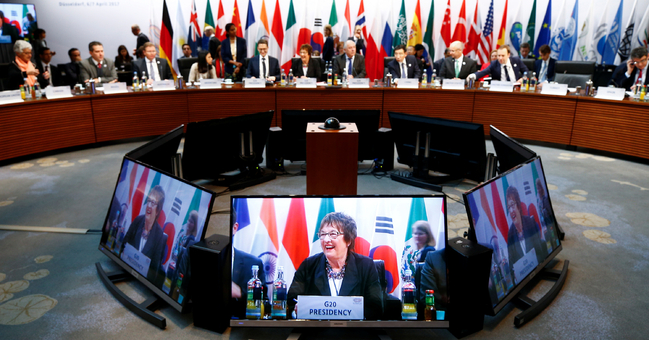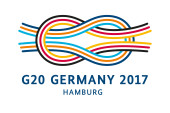G20 Digital Ministers’ meeting
“Digitalisation must include everyone”
The G20 Digital Ministers’ meeting in Düsseldorf agreed on a roadmap for joint policies for a digital future. “This is a great success,” said Minister Zypries. The meeting sent out “the signal that we want to shape the digital revolution together, for the benefit of all people”.
 Everybody should profit from digitalisation, according to Economic Affairs Minister Zypries.
Photo: REUTERS/Wolfgang Rattay
Everybody should profit from digitalisation, according to Economic Affairs Minister Zypries.
Photo: REUTERS/Wolfgang Rattay
One in two people in the world are connected to the Internet. Trade and businesses are dependent on the Internet. Therefore, the federal government has declared digitalisation to be one of the key topics of the German G20 Presidency.
At the end of the two-day meeting, the G20 Digital Ministers presented a joint plan as an international framework for action. It includes a programme with various targets to be achieved by the G20 in the coming years.
The G20 Digital Ministers met in Düsseldorf under the banner “Digitalisation: Policies for a Digital Future”, to discuss the opportunities and challenges of digitalisation with international experts from politics, business and civil society. The meeting was held in preparation for the G20 summit on 5 - 6 July in Hamburg.
High-speed Internet access for all by 2025
All people around the world should have access to the Internet by 2025. This is the target agreed on by the ministers at the end of their meeting. High-speed Internet should allow everyone to participate in digitalisation and the opportunities it provides. “Digitalisation must include everyone”, according to Minister Zypries.
The G20 nations want to ensure expansion of the broadband networks. This is the only way in which digital applications can be implemented at all. High-speed Internet is one of a total of ten key policy areas for which the G20 sees an urgent need for action, to drive digitalisation globally.
Digitalisation requires international standards
The ministers want to ensure the creation of similar international norms and standards worldwide as far as possible, to enable the different systems to interact with each other. This applies to Industry 4.0, online security, or even automated driving.
“In this way, not only can new intelligent products and business models be developed, but also new value-generating networks, across country and company borders,” emphasised Zypries.
Digital commerce without national models
In their concluding declaration, the G20 nations agreed to create inclusive growth and more employment through digital commerce. This also includes constructive cooperation of the G20 in negotiations with the WTO. Thinking of digitalisation in terms of national models is the primary error one could commit here, cautioned Zypries.
The agreements reached at this conference should serve as a roadmap for the coming years. Argentina, which will assume the G20 Presidency in 2018, has already announced its intention to build on the decisions taken in Düsseldorf.
Thursday, 6 April 2017

